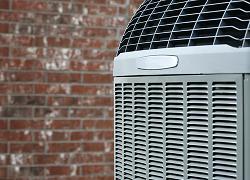 Heat pumps are an efficient way to heat and cool your home in a variety of climates, including here in the mountains of Western North Carolina. An air-source heat pump could be a great replacement for your existing HVAC system. Understanding heat pump pros and cons will help you make an informed decision.
Heat pumps are an efficient way to heat and cool your home in a variety of climates, including here in the mountains of Western North Carolina. An air-source heat pump could be a great replacement for your existing HVAC system. Understanding heat pump pros and cons will help you make an informed decision.
Take a look at this list of heat pump pros and cons to see if it would be a good match for your home.
Pros of Choosing a Heat Pump
The positives of a heat pump show why this technology is a popular choice for many homeowners.
- Year-round comfort – Instead of needing separate systems for heating and cooling, a heat pump provides both. This means one less system to worry about breaking down and needing repairs.
- Higher efficiency – Air-source heat pumps (the most common variety) are far more efficient than even the most efficient gas furnaces, and geothermal heat pumps are even more efficient. A gas furnace can only be as efficient as the amount of heat it can extract from the burning gas. The best gas furnace runs at about 97 percent efficiency. An electric heat pump does not heat the air so it is not limited by the amount of heat it can extract from fuel. Many modern heat pumps run between 170 and 330 percent efficiency, depending on the unit and the outside temperatures.
- Lower heating and cooling costs – Because the heat pump is so much more efficient, it should bring down the cost of heating and cooling your home. We say “should” because in some areas, the cost of natural gas is significantly cheaper than electricity, so it may still be less expensive to run a gas furnace than a heat pump.
- No ongoing gas charges – Most energy companies charge a year-round monthly connection charge, whether you are using the gas or not during the warmer months. With a completely electrical system, you don’t have to pay that connection charge any more, unless you use the gas for cooking or water heating in the home.
- Summer dehumidification – One of the best features of a heat pump is that it naturally dehumidifies your home’s air during the summer. While the mountains do not get as humid as the coastal regions of North Carolina, there’s still plenty of humidity in the air. Much of that goes away when you have a heat pump cooling your home in the summer.
- Less environmental impact – If being environmentally responsible is a priority for you, a heat pump is a great choice. Less energy usage means a smaller carbon footprint for your home. If you want to go even more environmentally friendly, you might consider a geothermal heat pump rather than an air-source model.
Cons of Choosing a Heat Pump
While there are plenty of positives when it comes to heat pumps, there are some negatives, too.
- Noise level – The indoor air handler/blower and outdoor condenser/compressor both use fans. The noise of these fans are one disadvantage noted by homeowners. The good news is that newer models have quieter fans, though the noise level may still rise as the unit ages. A geothermal heat pump has no outside unit making noise.
- Not as efficient during the colder months – Overall, air-source heat pumps provide efficient heating. However, that efficiency drops as the temperature falls outside. When the heat pump struggles to keep the house warm, it will kick on its auxiliary heating element, which is usually an electric resistance heater but may also be a gas furnace (in a dual-fuel, hybrid system). The backup electric heating element is an expensive way to heat your home. With our moderate winter temperatures in the Asheville area, most homeowners have only a few days a year when the auxiliary heating element needs to come on.
- Drafts of air – One common complaint about heat pumps is that air drafts may occur. The forced air will cause air movement. Keeping commonly used furniture away from air vents will minimize the impact of the drafts on the home’s occupants.
This list of heat pump pros and cons gives you an idea of whether it would be a good fit for your home. There are a couple of other things to consider in this decision. If your home does not already have existing ductwork, it must be installed. If your existing ductwork is not in good condition, you may have to replace it. If the ductwork is going to be a problem, a ductless mini-split heat pump system may be an option.
If you want to talk to a HVAC professional about heat pump pros and cons, please contact us at Gentry Heating Inc. We have served Asheville and Western North Carolina for more than 50 years.
Image Provided by Shutterstock.com



